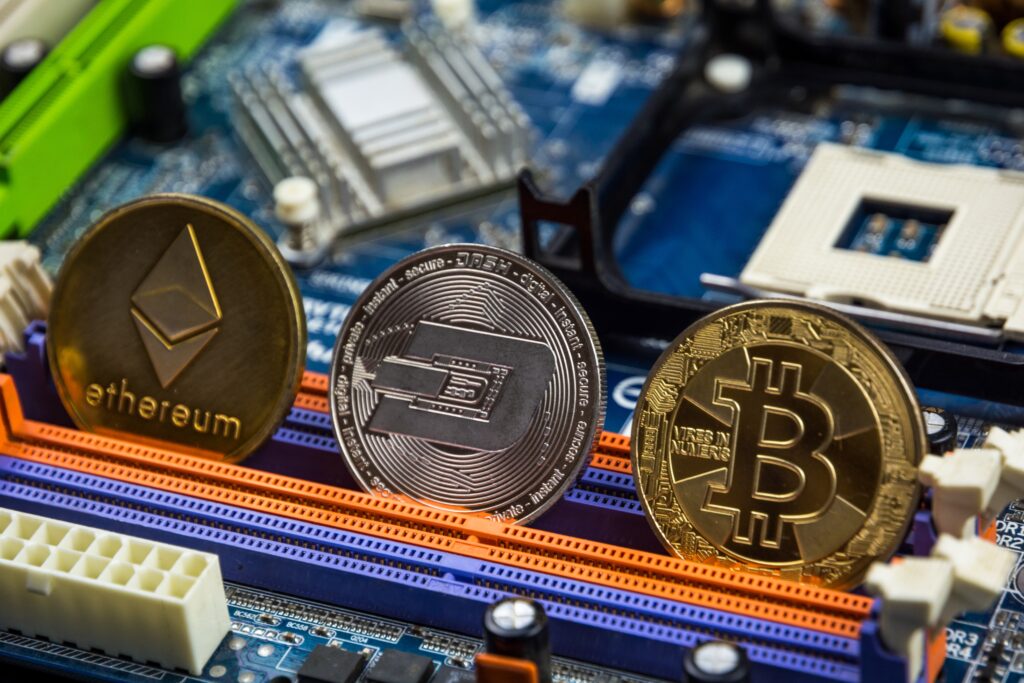Something that coin players are very worried about these days. It’s inevitable that the IRS has issued an announcement regarding the taxation of capital gains on investments in the cryptocurrency market, right? Even though the value of the coin still has a swing to win every day But coming out clearly declaring that income must be filed with that tax. would start to worry that there will be penalties or fines according to the law Today we bring information to share with each other.
For the law that the Revenue Department uses to collect the crypto tax this time. There are details
The Royal Decree amending the Revenue Code (No. 19) B.E.transfercrypto, only in theAppraisal in excess of investment considered as assessable income under Section 40 (4) (i) of the Revenue Code.
and set ‘Payers’ assess such has a duty to withhold tax at the rate of 15% of income under Section 50 (2) (f) of the Revenue Code. This is the capital gain tax on crypto investments.
Additionally, crypto sellers must take the profit from the sale off the cost. If there is a profit, it will be considered as a benefit from the transfer. which is appraised as income that exceeds the amount invested is considered assessable income under Section 40 (4) (i) that must be calculated for personal income tax

But if there is a loss, there is no tax. because it is not considered to have assessable income And since crypto is an asset class assessable income. Therefore, the property must be valued in money. By holding the price or value on the date of receiving crypto in accordance with Section 9 bis of the Revenue Code.
However, once the seller is subject to withholding tax from the buyer, the profit from the crypto transfer must still be filed on the return. To pay annual income tax in the form P.N.D.90 because the withholding tax is not considered Final Withholding Tax, but it is considered that the seller has paid the tax in advance. Therefore, the already deducted tax can be used as a tax credit. is to deduct the taxes that must be paid in that tax year under Section 60 of the Revenue Code.
The buyer is the person who pays the assessable income. Therefore, there is a duty to withhold tax at the rate of 15% of the said profit as well. No matter how much the payment is made under Section 50 (2) (f) of the Revenue Code and even if the seller is not a resident of Thailand must also be deducted at the rate of 15% under Section 50 (2) (a) of the Revenue Code.
In addition, the buyer is obliged to issue a withholding tax certificate to the seller under Section 50 bis of the Revenue Code. and must remit the tax withheld within 7 days from the last day of the month in which income is paid to the Area Revenue Branch Office in the locality where the purchaser has an office located under section 52 paragraph one in conjunction with section 3 oct paragraph two of the Revenue Code and the Notification of the Ministry of Finance Re: Extension of Withholding Income Tax Remittance Timeline, Income Tax Remittance VAT remittance and the filing dated 24 July 2001
However, the exchange is only an intermediary for trading crypto exchanges. is not the payer of the assessable income to the seller, therefore Exchange is not obliged to withhold tax. and remit any taxes
Stores that accept crypto There is a duty to withhold tax at source from the buyer to the IRS.
If crypto is used to pay for goods or services At the time of payment the crypto was worth more than when it was acquired. Cryptos, which are considered assets to pay for goods and services in income taxes, are considered transfers of crypto. Therefore, it is necessary to consider the value of goods or services that use crypto to pay. Minus the acquisition cost, crypto is worth more. It will be deemed to have profit from the transfer of crypto and benefit from the transfer, which will be regarded as Capital Gain, which is considered assessable income under Section 40 (4) (i) that must be calculated for personal income tax.

under section 50 (2) (f) of the Revenue Code. It shall be deemed that the seller of goods or services is the person who pays such assessable income to the payer of the goods or services. It is therefore obligated to withhold tax at the rate of 15% as well as to issue a withholding tax certificate under Section 50 bis of the Revenue Code. and must remit the tax withheld within 7 days from the end of the month in which the payment is made to the Area Revenue Branch Office
Transfer between father-mother-child not more than 20 million baht, no tax.
If someone transfers crypto to a recipient, they don’t have to do any work in return, for example, receiving from coin giveaways (Airdop), receiving rewards from sweepstakes or giving out affections from acquaintances. The recipient of the crypto is deemed to have the assessable income under Section 40 (8). The recipient has to bring the price of the crypto to file an annual income tax return in the form of PND. .90
If received crypto in the first half of the year is January – June Must submit a semi-annual income tax return form P.N.D. 94 for personal income tax payment by 30 September or 8 October of that year.
But acquiring crypto may be exempt from personal income tax in some cases, such as when a parent gives crypto to their child. When children give crypto to parents or in the case of one spouse giving crypto to the other By limiting the value of crypto received up to 20 million baht throughout the tax year.
In the case of receiving crypto worth 1,000 baht or more as a sweepstakes prize The prize payer is subject to withholding tax at a rate of 5%. Once the prize winner has been withholding tax, the value of the crypto on the day of receipt must be filed for tax return. .Ngor.Dor.90 and P.N.D. 94 because such withholding tax is not Final Withholding Tax, but it is considered that the winner has paid the tax in advance. Therefore, the already deducted tax can be used as a tax credit. And if the crypto receiver sells the received crypto and makes a profit. You have to pay withholding tax at the rate of 15% as well.
For those who earn crypto by working There is a duty to bring the price of crypto to file an annual income tax return in the form of P.N.D.90 if it receives assessable income under Section 40 (5)-(8) in half a year. the first is January – June The value of crypto must also be filed in a semi-annual personal income tax return form P.N.D. 94 as well.
The excavator line must be filed with a tax form P.N.D.90.
As for the mining of crypto coins (Mining) is considered as a person who earns money from freelance work. because it is not an employee or a contractor of anyone Therefore, the value of crypto earned by mining is considered assessable income under Article 40 (8), whereby the recipient has to bring the value of the crypto as of the date of receipt to file an income tax return. Yearly in the form of Por Ngor Dor 90

If such crypto is received in the first half of the year Must submit a half-year income tax return form P.N.D.94 as well if there are any expenses incurred due to mining can be deducted according to the rules of the law, namely
- is a normal charge are related and necessary for each type of business or for each type of income
- an amount that is reasonable and appropriate for the business
- It is not an expense that is prohibited by law to be deducted as an expense
- Income taxpayers must have evidence of deductions ready for employees to verify.
Caution If any expense is an investment Refers to the expenses paid for obtaining assets or benefits to the mining business for a period longer than 1 year, such as computers, graphics cards, or miners, etc. Miners will not be able to deduct expenses within whole purchase year because the law prohibits deduction as an expense But the cost must be gradually deducted in the form of depreciation. which is generally deducted 20% per tax year, but other expenses that do not look like an investment, such as electricity or internet can deduct all expenses in the paid year
In the case of miners, if they sell crypto and make a profit It is also considered to have assessable income under Section 40 (4) (i), which is also subject to withholding tax of 15%.
All investments are risky. Even playing coins of the new generation as well. So before investing or making any decisions Study the information in detail.
Source: Standard



